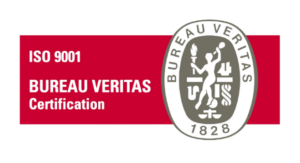ISO Certificates
What is ISO Certificates?
ISO certificates refer to certifications issued by the International Organization for Standardization (ISO) that validate an organization’s compliance with a specific international standard. ISO is a non-governmental organization that develops and publishes international standards for various industries and sectors, covering areas such as quality management, environmental management, occupational health and safety, information security, and more.
ISO certificates are awarded to organizations that demonstrate compliance with the requirements of a particular ISO standard through an audit conducted by an accredited certification body. The certification process typically involves a series of assessments to ensure that the organization’s management systems, processes, and practices meet the requirements of the relevant ISO standard.
Obtaining an ISO certificate can provide several benefits to organizations, including improved quality and consistency of products and services, enhanced customer satisfaction, increased operational efficiency, and reduced risk of non-compliance with legal and regulatory requirements. ISO certificates are recognized globally and can help organizations demonstrate their commitment to quality and continuous improvement.
- There are many ISO standards: ISO has developed over 23,000 standards covering a wide range of industries and sectors, each with its own specific requirements.
- ISO certification is voluntary: Organizations choose to seek ISO certification as a way to demonstrate their commitment to quality, environmental sustainability, or other areas covered by ISO standards.
- ISO certification is not permanent: ISO certificates are typically valid for a limited period, after which the organization must undergo a renewal audit to maintain its certification.
- ISO certification is not a guarantee of quality: While ISO certification indicates that an organization’s management systems meet the requirements of a specific ISO standard, it does not guarantee the quality of its products or services.
- Accreditation is important: Accreditation ensures that certification bodies are competent and impartial in assessing organizations for ISO certification.
- ISO standards are regularly updated: ISO standards are reviewed and revised periodically to reflect changes in technology, industry best practices, and other factors.
- ISO certification is recognized globally: ISO certificates are recognized and accepted worldwide, which can be beneficial for organizations operating in multiple countries or seeking to enter new markets.
- ISO certification can enhance an organization’s reputation: Obtaining ISO certification can help an organization build trust and credibility with customers, stakeholders, and regulatory bodies.
- ISO certification can drive continuous improvement: Implementing an ISO management system and seeking certification can encourage organizations to continually improve their processes and practices to meet the requirements of the standard.



